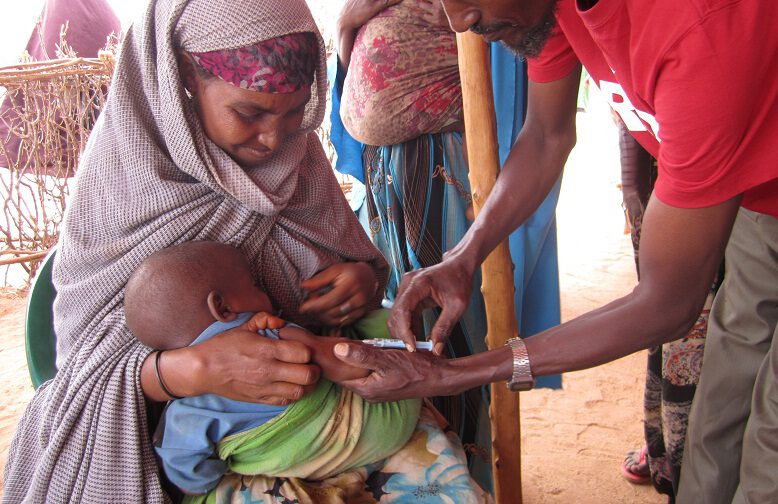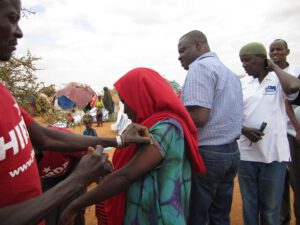
Access to healthcare remains one of Somalia’s most pressing challenges. Years of conflict and underinvestment have left vast regions with little to no functioning health infrastructure. HIRDA has responded by creating practical, community-based systems that bring health services closer to the people who need them most. In 2017, our programs focused on mother and child healthcare, malaria prevention, nutrition, and mobile outreach.
We established health posts in remote areas, run and supervised by local communities with support from HIRDA. These posts became lifelines for families with no other access to medical care. Mobile outreach teams operated in regions such as Bardera and Belet Hawa, providing pre- and postnatal services, immunizations, and basic healthcare for infants and mothers. Using UNICEF’s “reach every district” model, these teams helped increase vaccination coverage, health awareness, and early interventions that reduce maternal and child mortality.

HIRDA’s malaria prevention programs, supported by UNICEF’s Global Fund, distributed more than 1.5 million insecticidal nets over a decade, directly combating one of Somalia’s deadliest diseases. At the same time, we maintained cold chain management systems in Gedo, ensuring vaccines were stored and delivered safely to rural communities. These cold chain facilities did not only serve HIRDA but were also made available to partner organizations, reinforcing our role as a trusted health actor in the region.
Nutrition was another cornerstone of our healthcare interventions. In regions where malnutrition exceeded emergency thresholds, HIRDA ran stabilization centers and provided micronutrient support for children under five, pregnant women, and the elderly. By integrating nutrition programs with education on hygiene and child care, we aimed to reduce chronic malnutrition and its long-term effects on development.
Community involvement is central to HIRDA’s healthcare philosophy. By training local health workers, supporting women’s groups, and raising awareness through education campaigns, we ensured that knowledge and capacity stayed within the communities we serve. Our projects were designed not only to save lives immediately but to strengthen long-term resilience, reduce dependency, and build healthier futures.
Public health and community care continue to be at the heart of HIRDA’s mission. By addressing preventable diseases, improving maternal care, and promoting nutrition, we are creating the conditions where Somali families can live with dignity, security, and hope for the future.